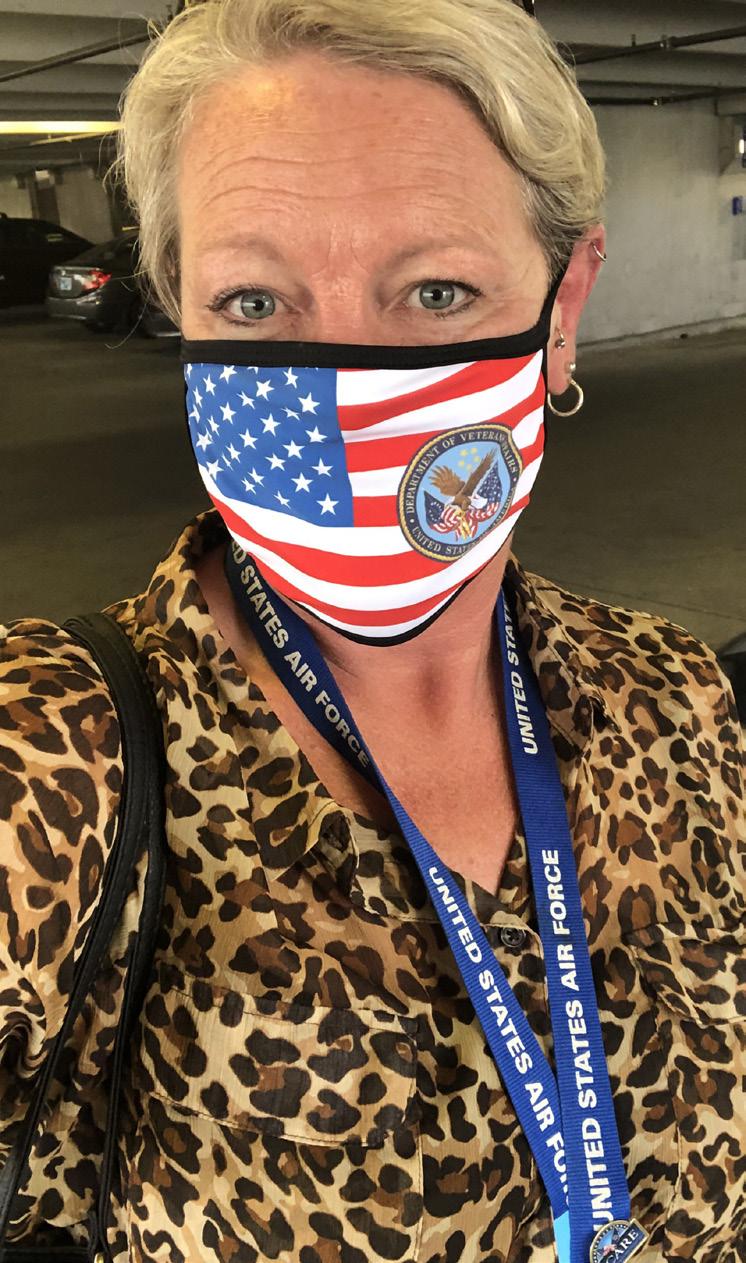
3 minute read
Vets with Connections
Amy Jacoby’s connection to Bellevue University started over a decade ago. During her time as a medic in the military, Jacoby had been stationed and lived in the southeastern Nebraska area multiple times, so she was familiar with the school.
“I was looking for an undergraduate program that matched my wants and my needs. For me, that was Bellevue University,” Jacoby said.
In 2014, Jacoby graduated with a double major in psychology and sociology. While Bellevue University is primarily an online institution, the school also offers classes on its campus, which is considered a more traditional experience for interested students. Jacoby loved being in the classroom, she said.
Online & Face-to-Face Classes “I love that they had traditional classes for both the psychology and sociology programs,” Jacoby said. “After transitioning from the military and working full-time with people, I was looking for something traditional in the classroom and Bellevue provided that for me.”
After serving in the military, it can be difficult to find a traditional college experience, Jacoby said.
“I went to school with young athletes who played baseball, volleyball and basketball and I was able to go to their sports games and support them and it was amazing,” she said. “I also had the most amazing professors because they encouraged us to submit papers to symposiums, conferences and workshops.”
Jacoby graduated with her master’s in social work from the University of Nebraska at Omaha in 2017, but said her invaluable experience at Bellevue University and the university’s dedicated Military Veteran Services Center are the reasons she was able to pursue her graduate degree.
The MVSC ‘Changed the Trajectory’ The MVSC showed me that I could afford to go to graduate school,” Jacoby said. “Working with the Center was transformative and changed the trajectory of where I was going professionally, which is what I needed. It was amazing and I am thankful for their support.”
After working for the Department of Veterans Affairs Medical Center in Omaha for a year, Jacoby transferred to Phoenix in June. In her new position, she works as a Mental Health Intensive Case Management Social Worker for the Department of Veterans Affairs in Phoenix. In her role, she helps veterans improve their quality of life through intensive case management.
Jacoby’s journey is proof that the connections you make at Bellevue University can stay with you even after you graduate or leave the city. Jacoby first met Marine Corps veteran Greg Neville a few years ago through the MVSC. Neville graduated from the university in 2020 with a Bachelor’s in Criminal Justice. “We both are veterans, so we speak the same language and have shared experiences that transcend other relationships because you bond quicker,” Jacoby said.
Connections That Count Neville also recently relocated to Phoenix and because of the connection they made through the MVSC, Jacoby will be able to help him make his transition to a new state a successful one.
“I will be able to help him get enrolled in his healthcare and veteran’s benefits and help him continue the work that he was doing in Omaha in Phoenix and connect him to resources,” Jacoby said.
Jerome Richardson, Director of the MVSC, said Neville is excited to be in Arizona.
“At the MVSC, we want to help our veterans make connections and provide resources so they can be successful in their ‘second mission’ however that mission might look,” Richardson said. “Being able to help a veteran like Neville relocate to a new city through a familiar friend like Jacoby is only one example of the impact the MVSC can have on veterans.”
He added that the military center serves all veterans and active duty military, regardless of their circumstances, but that most are enrolled at the university, which has been ranked among the nation’s most military-friendly institutions for more than a decade.
As for Jacoby, she said the MVSC played an important role in getting her where she is today.
“The MVSC helped me identify both short- and long-term goals and then they connected me with tangible resources to help me achieve those goals,” Jacoby said. “They helped fuel my passion for working with veterans and I am very thankful for that.”








